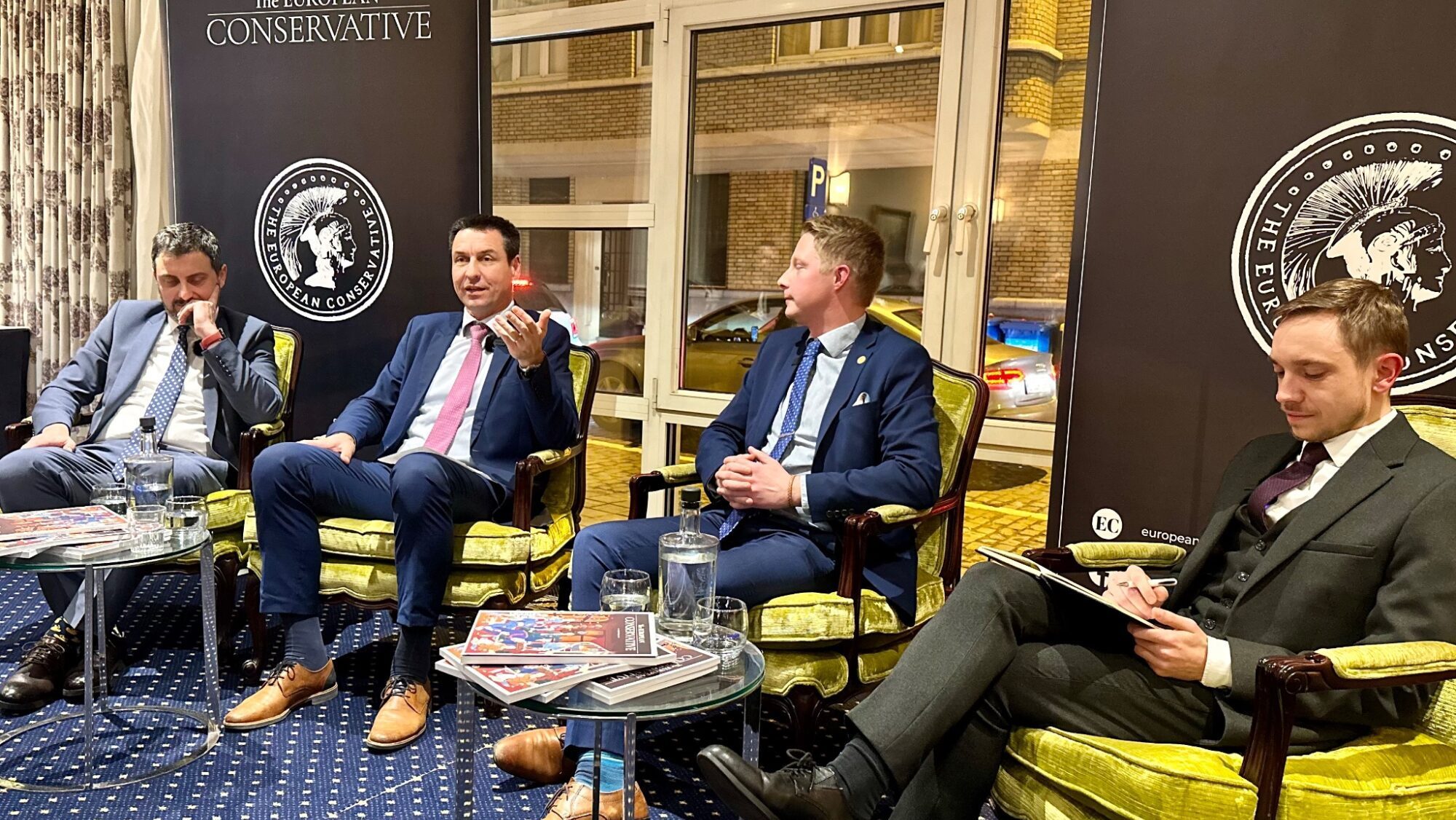
(L-R) Andrei Goicea, Ladislav Ilčić, Johan Nissinen, Tamás Orbán
Despite the criticism of nuclear power in Europe, which has led to the termination of every German reactor and Commission President Ursula von der Leyen’s view that nuclear power is not “strategic” for decarbonisation, it is important not to overlook the positive steps being taken. These include the backing by MEPs of small-scale reactors and the Parliament’s decision to put nuclear on the list of technologies eligible for preferential treatment. Yet there is, as panellists at The European Conservative’s latest event made clear, much more to be done.
Highlighting the scale of the problem, Ladislav Ilčić, a Croatian MEP who serves as a member of the Bureau of the European Conservatives and Reformists (ECR) Group, said that “we are losing on all possible levels.” He explained that most of the mainstream media coverage “is not based in common sense” and they will “always play the game against” those who support a pro-nuclear shift; just as there aren’t enough supporters on the political and academic levels to produce any meaningful change.
Not that gaining more support could alone change the situation. Andrei Goicea, a nuclear engineer who is now policy director at Nucleareurope, stressed that, after a long period of European policymakers turning their backs on nuclear power, there simply aren’t enough experts in the field. He said that a good proportion of these over time saw no point in going to “an industry that hasn’t got a future.” Speaking from the audience, London South Bank University visiting professor James Woudhuysen added that, after two lost decades of nuclear development, “we need to stare reality in the face.”
This partly involves addressing concerns about the use of nuclear power. Johan Nissinen, the third panellist, an MEP for the Sweden Democrats, noted that many point to the high cost of building plants while countering that wind energy, relying on turbines with much shorter shelf lives, is heavily burdensome on the public purse, too, and could not survive without subsidies.
The nuclear lobby, added MCC Brussels Chief of Staff Tony Gilland, also needs to work out whether it is “willing to combat [the] irrationalism” of the green agenda. Goicea was open about not wanting to disparage wind power, as an example, but others agreed that nuclear alone is not the answer to Europe’s current energy woes; fossil fuels are needed, too.
Ilčić pointed out that the energy crisis started at least a year before Russia invaded Ukraine, which officials across the West tout to “excuse” their failures. He said this was due to the “ideological” green approach which views the planet as more important than its people. But there was some appreciation of the view that the nuclear lobby could spend some time “playing” with the green agenda so as to get back on its feet.
The panellists agreed that the most important step moving forward was, as Nissinen put it, to “talk to people [that is, voters—not so much the politicians and academics] in a way they understand.” We are, he said, currently “very bad at doing this” and “need to [be] better.”
Despite his pessimism about politicians and NGOs beginning to talk about the pros of nuclear, Ilčić agreed that the lobby will do better engaging with voters “because your ideas are based in common sense” rather than in ideology.
Tamás Orbán, the event’s chair, ended the conversation on a note of optimism, highlighting forecasts that say the Greens will lose the most seats at next year’s elections. Not that this will resolve all; there remains, as The European Conservative Editor-in-Chief Alvino-Mario Fantini pointed out, the important question of how to persuade voters that the use of nuclear power isn’t even a debate. But Woudhuysen said that decreasing trust in the drive for ‘net zero’ already means there has been a “slight nuclear renaissance” in more recent times, and Ilčić concluded with the hopeful message that, because of democracy, “we will win.”
